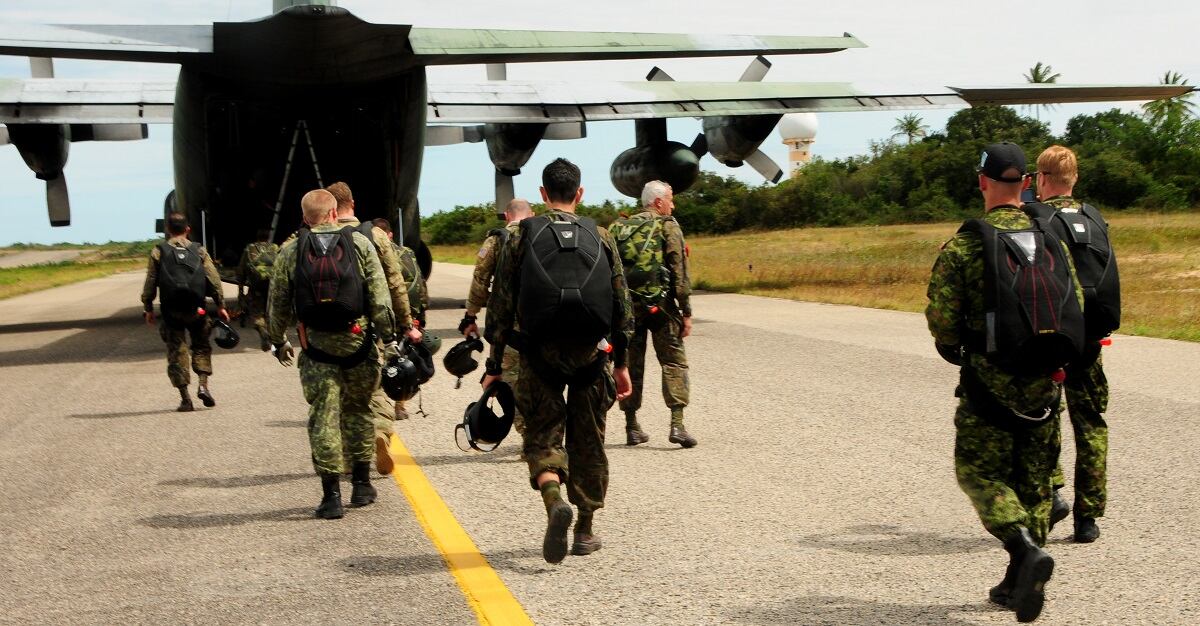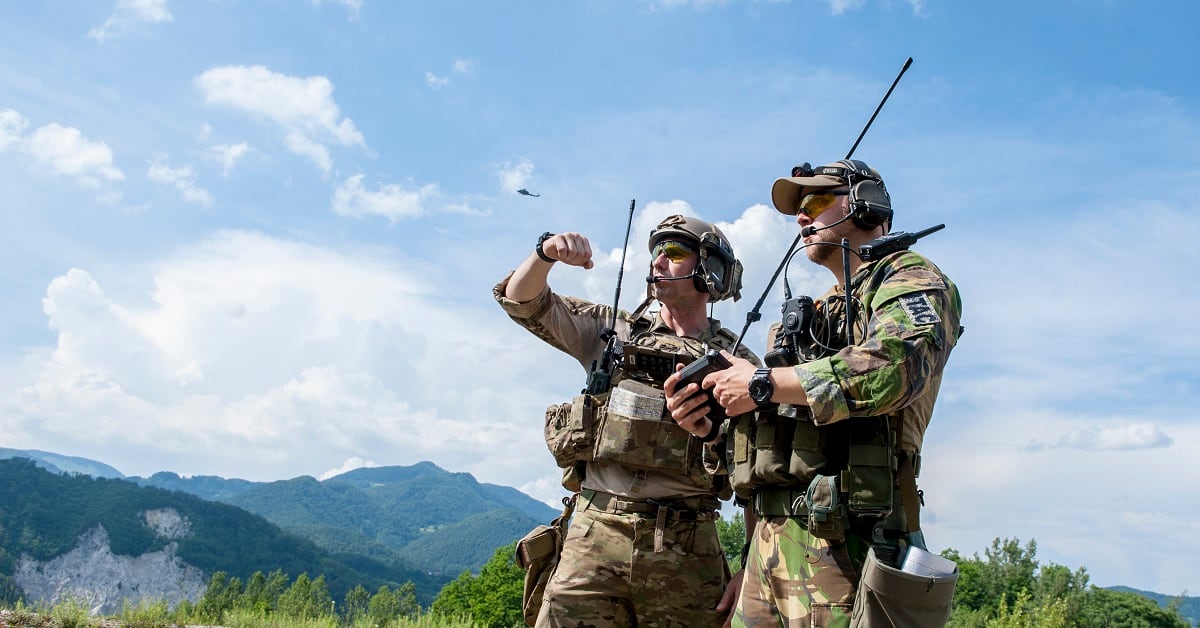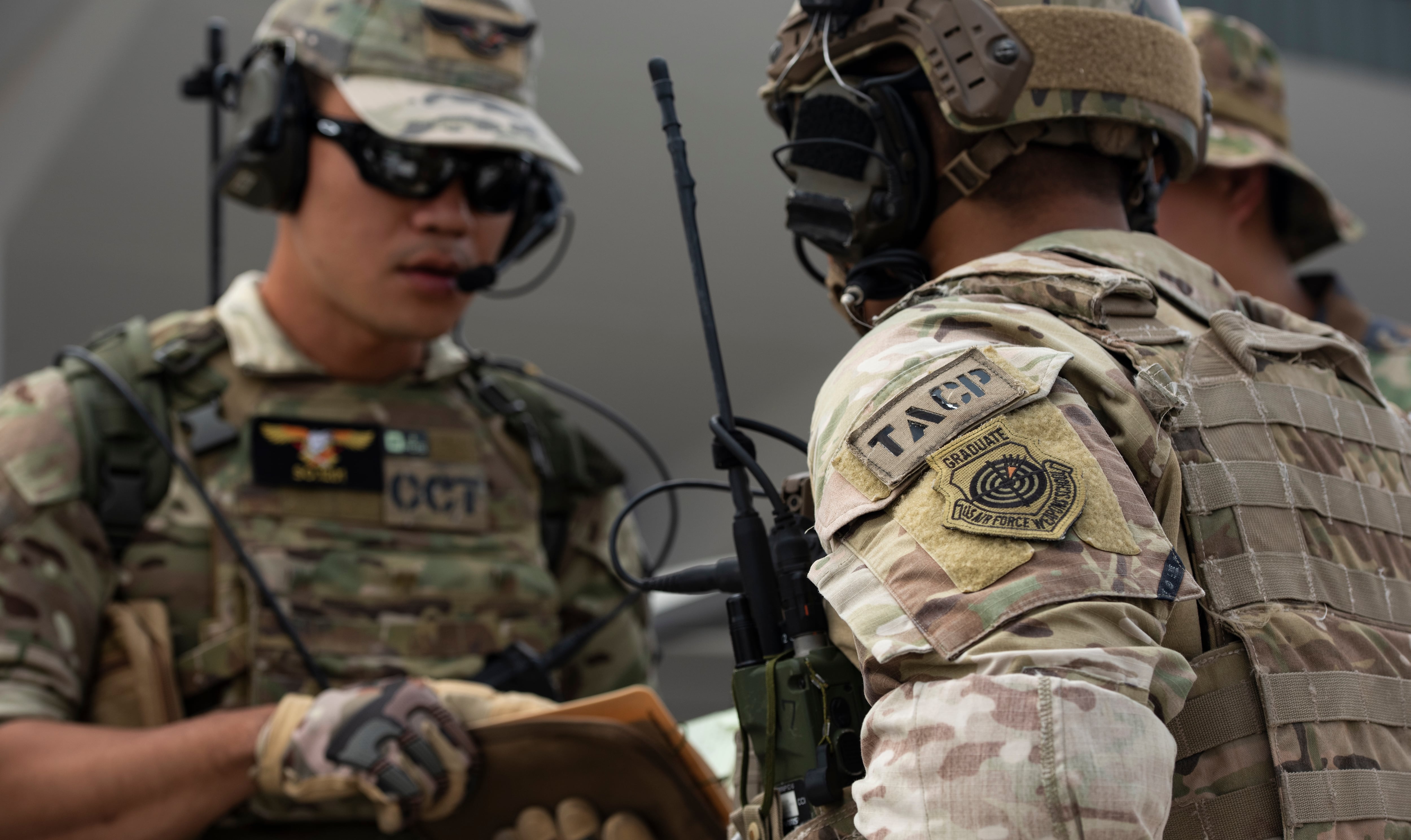Royal Thai Air Force combat controllers and U.S. Air Force tactical air control party airmen trained together during exercise Cope Tiger this month, as Thailand works to train troops with the ability to call in airstrikes during combat.
The U.S. TACPs came from the 116th Air Support Operations Squadron of the Washington Air National Guard to train with the Thai troops in joint terminal attack control — the direction of close-air support during combat from a forward location on the battlefield.
The TACPs mentored the Thai CCTs, utilizing air power from the U.S., Thailand and Singapore on a close-air support range. Their goal was to help refine the Thai airmen’s techniques and tactics during air support missions, as Thailand establishes a fledgling JTAC program.
“We are practicing how we fight. The two-way communication that takes place between us and the pilots is essentially the exact same,” Staff Sgt. Tim Williams, a TACP and JTAC assigned to the 116th ASOS, said in a Cope Tiger news release.
“The intent over the next 10 years is for the Royal Thai air force to become signatories of the JTAC Memorandum of Agreement and be recognized across the world as a legitimate JTAC program,” Williams added.
Building a close-air support capability within allied nations appears to be a growing trend.
Countries like the U.K., Poland, Belgium, the Netherlands, Estonia, France, Portugal and Brazil, have all been developing cohorts of JTAC-qualified airmen after the wars in Afghanistan and Iraq showed the importance of close-air support in modern combat.
RELATED

“We are working closely with the Thai combat control team exchanging tactics, techniques, and procedures in regards to close-air support,” Master Sgt. Danny Aboy, another TACP and JTAC assigned to the 116th ASOS, said in the release.
CCT and TACP are both battlefield airmen careerfields in the Air Force that typically receive JTAC certification.
The U.S. and Thai airmen practiced on the training range without using live munitions, an important stepping stone as troops learn the process of passing target coordinates to aircraft, talking pilots onto targets and flagging the locations of friendly forces, among other tasks.
RELATED

The Thai airmen will take what they learned with their American allies and train their teammates at home.
“The three Thai CCT airmen we are conducting the subject matter exchange with are all in leadership positions,” Williams said. “They will first become GFACs [ground forward air controller], which is a stepping stone to becoming a JTAC down the road.”

The Washington Air National Guard, where the U.S. airmen are assigned, is also partnered with Thailand for the U.S. State Department’s State Partnership Program.
The initiative partners U.S. National Guard units from different states with allied nations’ militaries for subject matter and cultural exchanges.
“Working with multiple nations has been a wonderful experience,” Jirot Prasoetampaisakul, a Royal Thai Air Force CCT officer who participated in the exercise, said.
“I have learned so much throughout the course of this exercise. I look forward to taking my newfound knowledge and sharing it with my troops," Prasoetampaisakul added.
Kyle Rempfer was an editor and reporter who has covered combat operations, criminal cases, foreign military assistance and training accidents. Before entering journalism, Kyle served in U.S. Air Force Special Tactics and deployed in 2014 to Paktika Province, Afghanistan, and Baghdad, Iraq.





